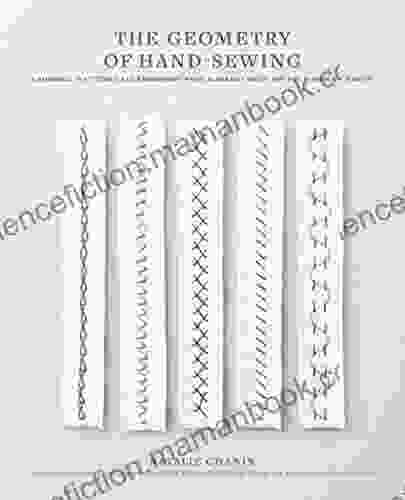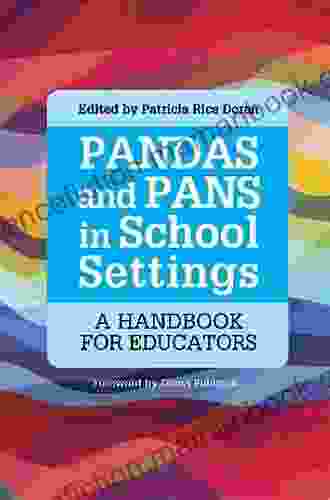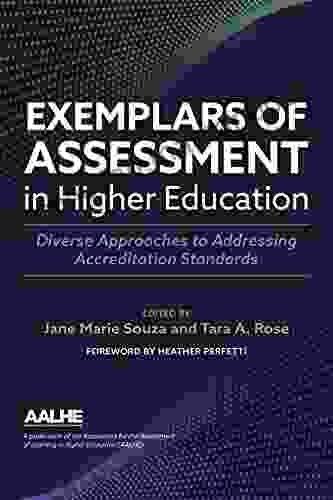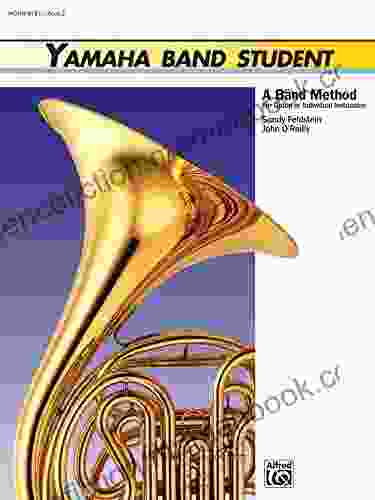Exemplars of Assessment in Higher Education: Transforming Practice through Innovation

Assessment plays a pivotal role in higher education, serving as a crucial tool to evaluate student learning, provide feedback, and drive instructional decision-making. As educators strive to enhance the quality and effectiveness of their assessment practices, exemplars of assessment emerge as valuable resources for inspiration and guidance. These exemplary models showcase innovative approaches to assessment that have been proven to promote student engagement, deepen understanding, and support transformative learning experiences.
Defining Exemplars of Assessment
Exemplars of assessment are outstanding examples of assessment practices that embody the principles of effective assessment design. They are characterized by:
4.5 out of 5
| Language | : | English |
| File size | : | 5759 KB |
| Text-to-Speech | : | Enabled |
| Screen Reader | : | Supported |
| Enhanced typesetting | : | Enabled |
| Word Wise | : | Enabled |
| Print length | : | 462 pages |
- Alignment with Learning Objectives: Exemplars of assessment are closely aligned with the specific learning objectives of a course or program, ensuring that they accurately measure student achievement.
- Validity and Reliability: They are designed to be valid and reliable, providing accurate and consistent measures of student learning.
- Authenticity: Exemplars of assessment engage students in real-world or meaningful contexts, reflecting the actual application of knowledge and skills.
- Diversity: Exemplars of assessment utilize a variety of assessment formats, including traditional exams, projects, portfolios, and innovative methods.
- Transparency: They are clear and transparent in their purpose, expectations, and grading criteria, providing students with a roadmap for success.
Benefits of Using Exemplars of Assessment
Incorporating exemplars of assessment into teaching practices offers numerous benefits for educators and students alike:
- Enhanced Assessment Quality: Exemplars of assessment provide a benchmark for excellence, inspiring educators to design and implement high-quality assessments.
- Improved Student Performance: By exposing students to exemplary assessment practices, they gain insights into what constitutes successful performance and develop effective study strategies.
- Reduced Bias: Exemplars of assessment help educators mitigate bias and ensure that assessments are fair and equitable for all students.
- Professional Development: Analyzing and discussing exemplars of assessment is a valuable professional development opportunity for educators to reflect on their own assessment practices and seek improvement.
- Innovation and Collaboration: Exemplars of assessment encourage educators to share ideas and collaborate on developing innovative assessment approaches.
Types of Exemplars of Assessment
Exemplars of assessment encompass a wide range of assessment formats, including:
- Traditional Exams: Exemplary exams are well-structured and aligned with learning objectives, providing students with clear expectations and opportunities to demonstrate their knowledge and skills.
- Performance-Based Assessments: Exemplary performance-based assessments involve students in hands-on activities that require them to apply their learning in practical settings.
- Projects: Exemplary projects challenge students to work independently or collaboratively on extended tasks, demonstrating their ability to synthesize knowledge and apply it to real-world problems.
- Portfolios: Exemplary portfolios showcase student work over time, providing a comprehensive record of their progress and growth.
- Self-Assessments: Exemplary self-assessments empower students to reflect on their learning, identify areas of strength and weakness, and develop self-directed learning goals.
Examples of Exemplars of Assessment
Numerous institutions and organizations have developed and shared exemplars of assessment to inspire and inform educators. Some notable examples include:
- University of California Berkeley: The Center for Teaching and Learning at UC Berkeley provides a repository of exemplary assessment practices, including case studies, rubrics, and peer reviews.
- Association for the Assessment of Learning in Higher Education (AALHE): The AALHE Assessment Exemplars database houses a collection of peer-reviewed assessment practices that demonstrate cutting-edge approaches to assessment.
- Quality Matters: Quality Matters offers a comprehensive set of assessment standards and rubrics, providing guidance for designing and evaluating high-quality digital learning materials.
Case Study: Innovative Assessment in Online Education
In the realm of online education, exemplars of assessment have played a vital role in transforming assessment practices.
The University of Florida's Online Learning Innovation and Creation (OLIC) program has implemented a series of innovative assessment approaches, including:
- Digital Portfolios: Students create digital portfolios to document their learning journey, showcasing their projects, reflections, and progress over time.
- Peer-to-Peer Assessment: Students provide feedback on each other's work, fostering a culture of collaboration and self-assessment.
- Adaptive Assessments: OLIC utilizes adaptive assessment technology to personalize assessments based on student responses, providing real-time feedback and tailored learning experiences.
These innovative assessment practices have resulted in improved student engagement, increased retention rates, and enhanced overall learning outcomes.
Exemplars of assessment are invaluable resources for educators seeking to transform their assessment practices. By studying, implementing, and sharing exemplary assessment models, educators can promote student success, enhance the quality of their teaching, and contribute to the continuous improvement of higher education.
As the field of assessment continues to evolve, it is essential for educators to remain abreast of emerging exemplars and innovations to ensure that assessment practices remain relevant, effective, and transformative.
4.5 out of 5
| Language | : | English |
| File size | : | 5759 KB |
| Text-to-Speech | : | Enabled |
| Screen Reader | : | Supported |
| Enhanced typesetting | : | Enabled |
| Word Wise | : | Enabled |
| Print length | : | 462 pages |
Do you want to contribute by writing guest posts on this blog?
Please contact us and send us a resume of previous articles that you have written.
 Top Book
Top Book Novel
Novel Fiction
Fiction Nonfiction
Nonfiction Literature
Literature Paperback
Paperback Hardcover
Hardcover E-book
E-book Audiobook
Audiobook Bestseller
Bestseller Classic
Classic Mystery
Mystery Thriller
Thriller Romance
Romance Fantasy
Fantasy Science Fiction
Science Fiction Biography
Biography Memoir
Memoir Autobiography
Autobiography Poetry
Poetry Drama
Drama Historical Fiction
Historical Fiction Self-help
Self-help Young Adult
Young Adult Childrens Books
Childrens Books Graphic Novel
Graphic Novel Anthology
Anthology Series
Series Encyclopedia
Encyclopedia Reference
Reference Guidebook
Guidebook Textbook
Textbook Workbook
Workbook Journal
Journal Diary
Diary Manuscript
Manuscript Folio
Folio Pulp Fiction
Pulp Fiction Short Stories
Short Stories Fairy Tales
Fairy Tales Fables
Fables Mythology
Mythology Philosophy
Philosophy Religion
Religion Spirituality
Spirituality Essays
Essays Critique
Critique Commentary
Commentary Glossary
Glossary Bibliography
Bibliography Index
Index Table of Contents
Table of Contents Preface
Preface Introduction
Introduction Foreword
Foreword Afterword
Afterword Appendices
Appendices Annotations
Annotations Footnotes
Footnotes Epilogue
Epilogue Prologue
Prologue Eric Stone
Eric Stone Georgia Stephen
Georgia Stephen Ben Macintyre
Ben Macintyre Daniel Platt
Daniel Platt Dean Jobb
Dean Jobb Benjamin Spock
Benjamin Spock Dana Goldstein
Dana Goldstein Dark Mistress Aurora
Dark Mistress Aurora Julie Buckner Armstrong
Julie Buckner Armstrong G Jay Westbrook
G Jay Westbrook Kris T Bethke
Kris T Bethke Brendan Walsh
Brendan Walsh Erin Lowry
Erin Lowry Dan Cosley
Dan Cosley Ian Lord
Ian Lord Eirik Westcoat
Eirik Westcoat C J Cala
C J Cala Harvard Business Review
Harvard Business Review Benjamin Levin
Benjamin Levin Carrie Bates
Carrie Bates
Light bulbAdvertise smarter! Our strategic ad space ensures maximum exposure. Reserve your spot today!

 Tom HayesTerrible Haiku, Pardon the Mundane: An Exploration of the Bad and the Ugly in...
Tom HayesTerrible Haiku, Pardon the Mundane: An Exploration of the Bad and the Ugly in...
 William FaulknerRomance In Stitches: Embroidered Art from Alabama Chanin and The School of...
William FaulknerRomance In Stitches: Embroidered Art from Alabama Chanin and The School of... Mikhail BulgakovFollow ·11.1k
Mikhail BulgakovFollow ·11.1k Fred FosterFollow ·4.8k
Fred FosterFollow ·4.8k Efrain PowellFollow ·14.9k
Efrain PowellFollow ·14.9k Gilbert CoxFollow ·15.6k
Gilbert CoxFollow ·15.6k Dwight BellFollow ·3.5k
Dwight BellFollow ·3.5k Jerome BlairFollow ·14.1k
Jerome BlairFollow ·14.1k Tom HayesFollow ·2.8k
Tom HayesFollow ·2.8k Ethan MitchellFollow ·2.3k
Ethan MitchellFollow ·2.3k

 Ashton Reed
Ashton ReedClean(ish) Food for People Who Like to Eat Dirty
By: [Your Name] Are...

 Ronald Simmons
Ronald SimmonsThe Handbook for Educators: A Comprehensive Guide to...
The Handbook for...

 Derrick Hughes
Derrick HughesAny Place Hang My Hat: A Hauntingly Beautiful Novel by...
A Masterpiece of...

 Adrien Blair
Adrien BlairFly Me to the Moon Vol. 5: A Lunar Odyssey through...
In the vast...

 William Powell
William PowellTips By Gardeners On Variety Of Subjects
Gardening...
4.5 out of 5
| Language | : | English |
| File size | : | 5759 KB |
| Text-to-Speech | : | Enabled |
| Screen Reader | : | Supported |
| Enhanced typesetting | : | Enabled |
| Word Wise | : | Enabled |
| Print length | : | 462 pages |










